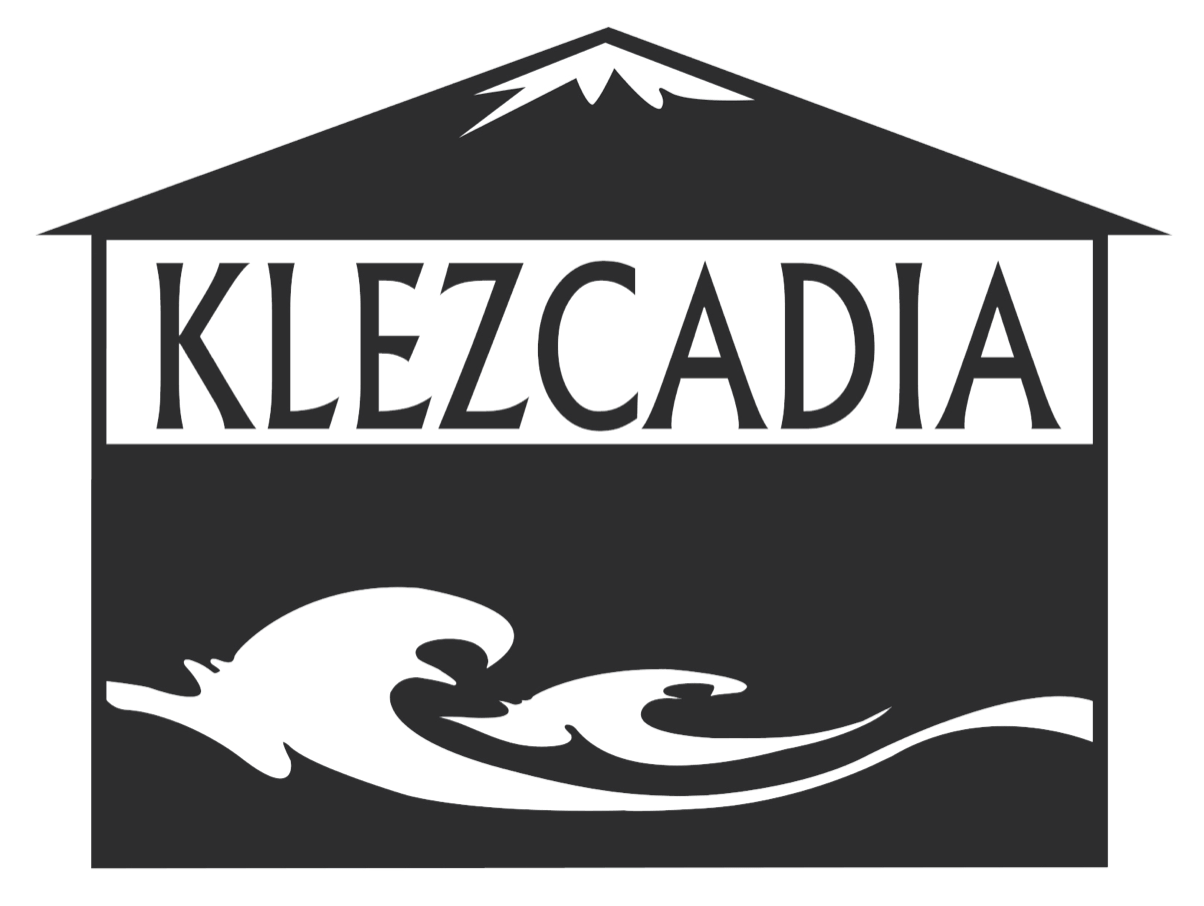
Cookie Segelstein (violin)
Joshua Horowitz (19th-century button accordion)
Stuart Brotman (bass)
Veretski Pass is a trio of Jewish Music veterans who have been at the forefront of the klezmer revival for over 25 years. Their output spans the ultra-traditional to the Avant Garde. Taking their name from the mountain pass through which Magyar tribes crossed into the Carpathian basin to settle what later became the Austro-Hungarian Empire, Veretski Pass offers a unique and exciting combination of virtuosic musicianship and raw energy that has excited concertgoers across the world. The trio plays Old Country Music with origins in the Ottoman Empire, once fabled as the borderlands of the East and the West. In a true collage of Carpathian, Jewish, Rumanian and Ottoman styles, typical suites contain dances from Moldavia and Bessarabia; Jewish melodies from Poland and Rumania; Hutzul wedding music from Carpathian-Ruthenia; and haunting Rebetic aires from Smyrna, seamlessly integrated with original compositions. Their CDs have repeatedly been on the 10-best recording lists of journalists since 2002.
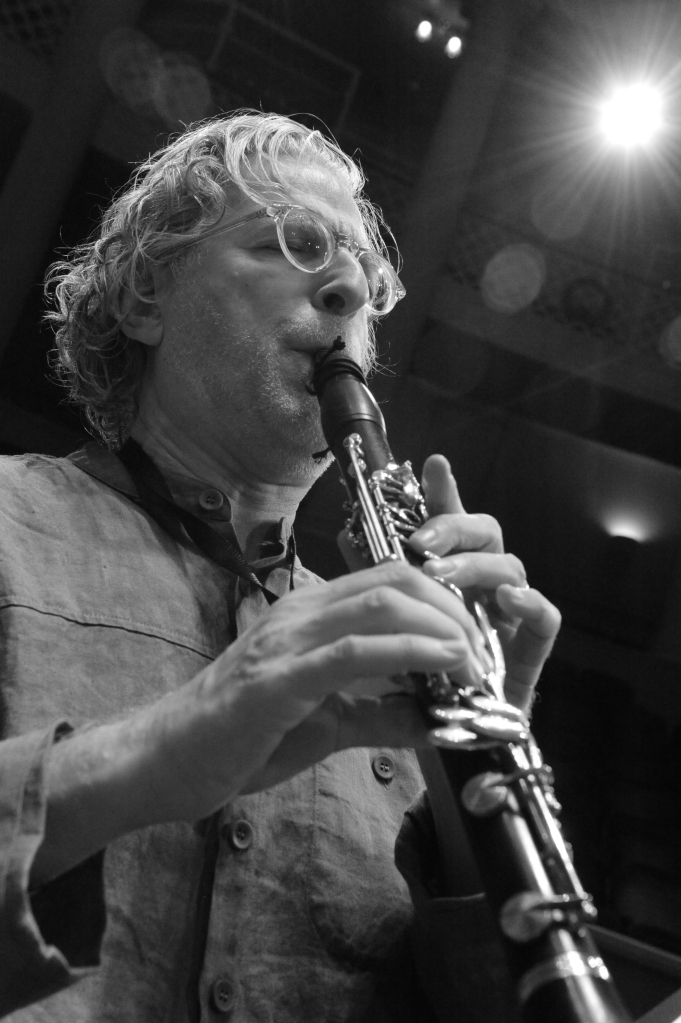
Clarinetist and ethnomusicologist Joel Rubin is Adjunct Researcher at the University of Bern, Switzerland (Institutes of Musicology and Jewish Studies). For the past four decades he has been a leading figure in klezmer as performer, scholar, author, and educator, including a fifteen-year stint at the University of Virginia. He collaborates regularly with Veretski Pass, was a founder of Brave Old World, performed in the early 1990s with Joshua Horowitz as Rubin & Horowitz, and has led the Joel Rubin Ensemble since 1994. Rubin has worked closely with traditional musicians such as the Epstein Brothers, Sid Beckerman, and Moussa Berlin. He has taught at numerous workshops, including Yiddish Summer Weimar, Klezfest London, Yiddish New York, KlezKamp and KlezKanada. He has recorded numerous CDs and published extensively, most recently New York Klezmer in the Early Twentieth Century: The Music of Naftule Brandwein and Dave Tarras (U. of Rochester Press, 2020).
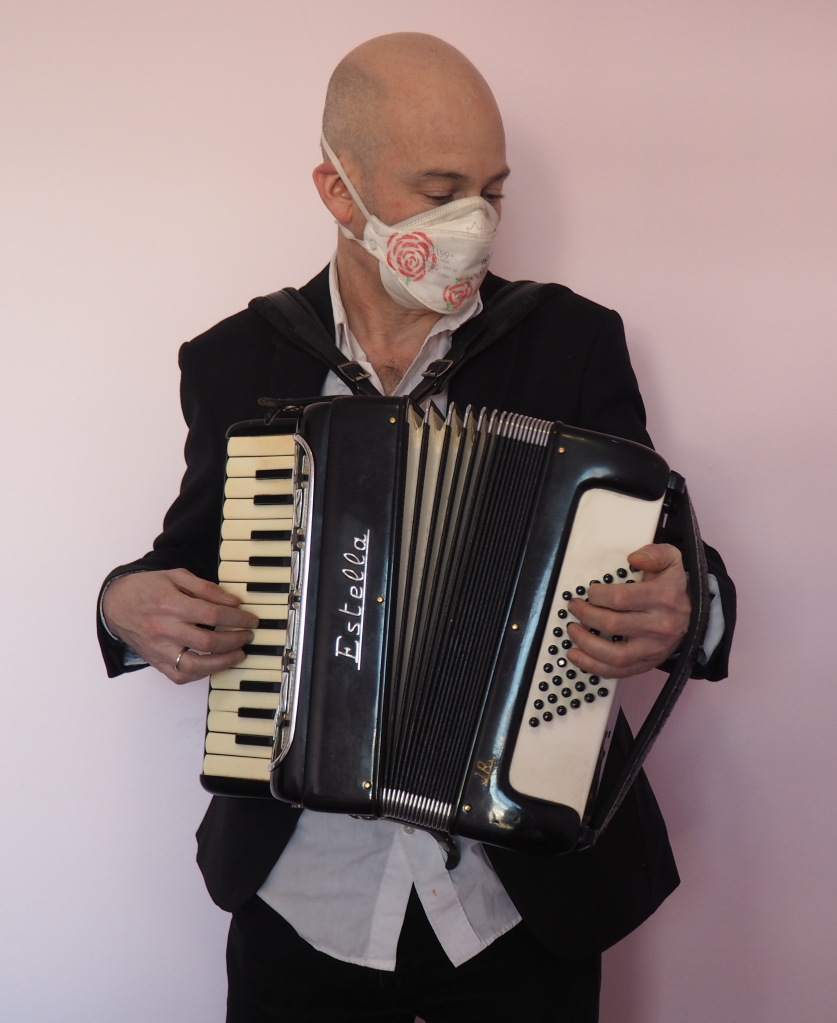
COAX Records artist Geoff Berner (pronouns: He/him) is a Jewish singer/songwriter/accordion player/novelist/political activist living in Vancouver on the unceded lands of the Musqueum, Squamish and Tsleil-Watouth peoples.
Over the last 25 years, he’s garnered a sizable, enthusiastic international cult following, having toured in 17 countries and played live on national radio in 7 of them. He’s opened for rock stars in stadiums, led 1000s in rude sing-a-longs from festival mainstages, and played nearly every dirty little cafe bar in Western Europe. He’s toured Scandinavia, extensively and often.
He’s spent much of his career playing klezmer music, the folk music of Eastern European Jews, but he also plays and writes folk songs in English, often of a lefty, satirical political nature. Those songs have been covered by a long of other artists, including: The Be Good Tanyas (“Light Enough to Travel”), Corb Lund (“That’s What Keeps the Rent Down, Baby”) Kaizers Orchestra (“Whiskey Rabbi”), Rae Spoon (“Unlistenable Song”) and Ben Caplan (“Traveller’s Curse).
His latest album, “7 Plague Songs” is his Covid Folk Songs album. During this ongoing, definitely-not-over pandemic, Berner has chosen to stay off the road and out of the bars. “I refuse to be a Pied Piper of mass infection,” he says. With the release of the new album, he’s beginning to play outdoor shows with strict Covid safety protocols, to ensure safety and accessibility for everyone.
“7 Plague Songs” is intended to perform the traditional role of satire: afflicting those who are comfortable with the avalanche of death and disability that Covid is bringing, and comforting those afflicted by Long Covid, mourning the loss of loved ones who died because of governments’ scandalous neglect of public health, or coping with the gaslighting of a dominant political culture determined to deal with overlapping crises by simply pretending they are over. “My message to you, if you know the pandemic isn’t over, is: ‘You are not alone.’”
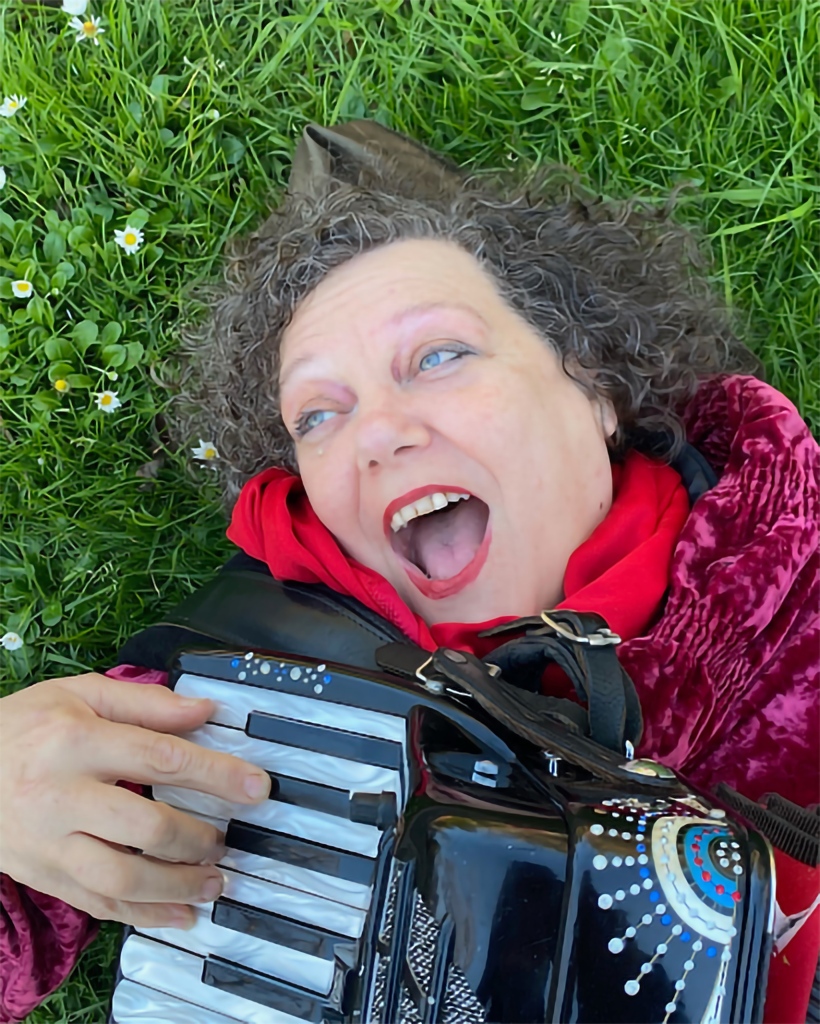
Yiddish singer/accordionist Jeanette Lewicki (she/her) started the Pepi Litman Project in 2020, to translate the bawdy Yiddish songs of that radical performer. Litman, born female around 1874, frequently sang in full male Khosidic garb. Eyewitness accounts say:
“She would burst from behind the curtains singing; and quick as lightning set the audience on fire…as choirboys and merchants, tailors and doctors, maids and madames caught up her tunes and sang along.”
Litman’s powerful contralto and liberated ways make her a role model of Queer Yidishkayt. But her broad accent is incomprehensible to most modern Yiddish speakers. In 1996, Jeanette started collecting Litman recordings, references and images, translating what she could, and asking every Yiddishist she met for help. In 2021, having worked with Michael Alpert, Arkady Gendler, Michael Aylward, Alan Bern, Kurt Bjorling, Adrienne Cooper, Itzik Gottesman, Josh Horowitz, Jane Peppler, Beyle Schaechter-Gottesman, Martin Schwartz, and Miryem-Khaye Siegel, Jeanette met Yiddishist Eliezer Niborski. She is thrilled to premiere the resulting translations in concert and workshops at KLEZCADIA.
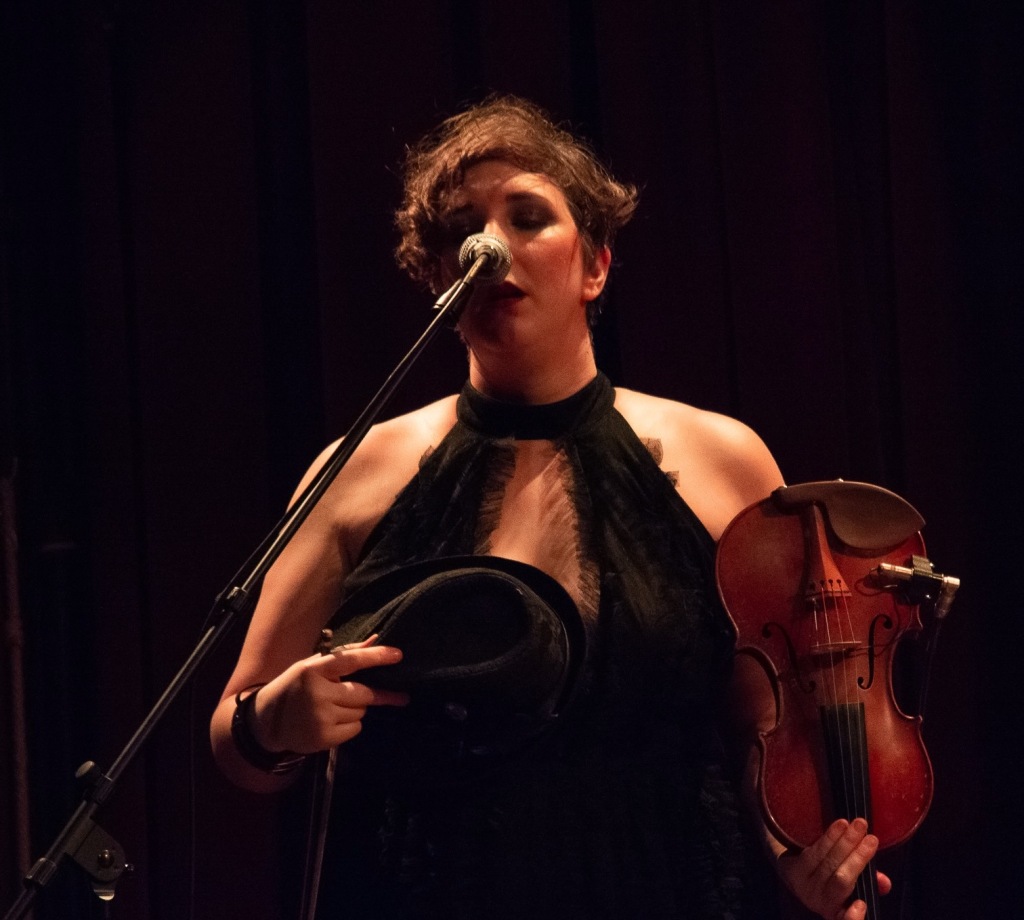
Singer, multi-instrumentalist composer and neo-vaudevillian Mai Li Pittard (she/they) has been a rising voice in new Yiddish culture since 2013. After a fringe theater production led them first to form The Debaucherauntes, and then to venture further down the rabbit hole of Yiddish culture, Miles swept KlezKanada’s 2017 KrechtsFactor vocal competition with “Different Parade,” and went on to share stages with Daniel Kahn, Geoff Berner, Michael Winograd, Jinta-La-Mvta, and more. Since the pandemic’s onset, she’s taught for Boston Workers Circle and Queer Yiddish Camp, among others, and been featured by Congress for Jewish Culture and Arbeter Ring events.
As an immunocompromised working musician, Miles is thrilled to be a part of the first Yiddish culture event to center the experiences of people who need pandemic safety to be the foundation for participation.
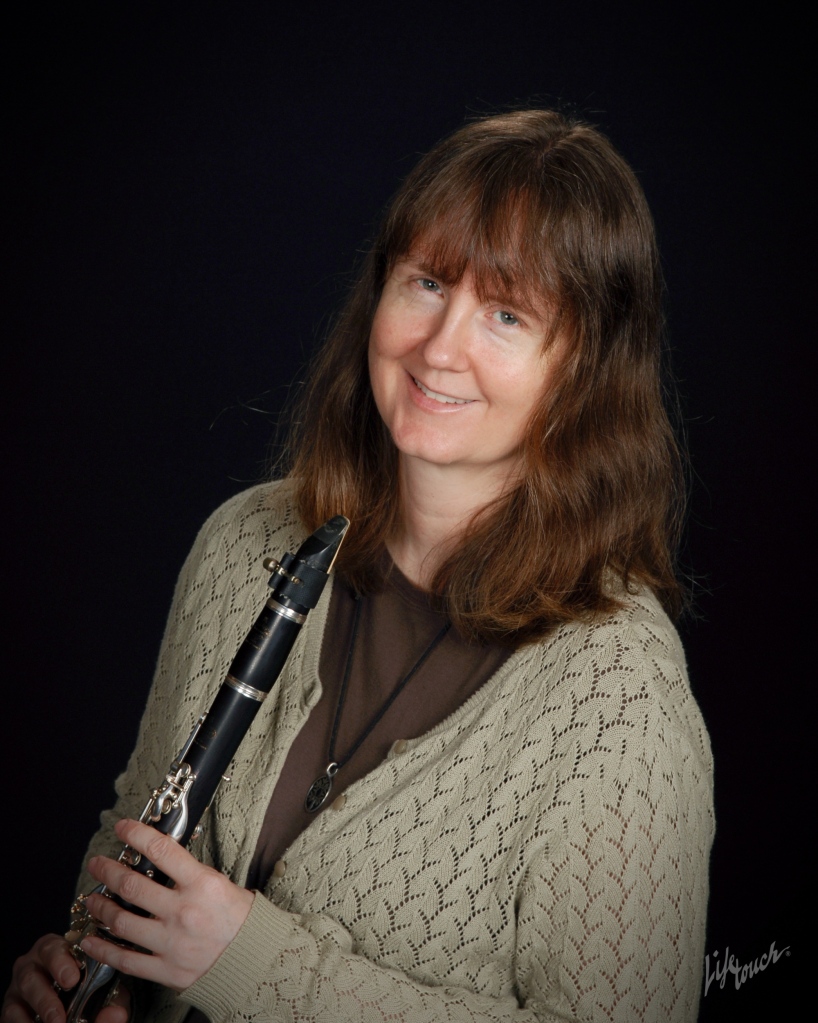
Marianne Tatom teaches online Yiddish classes through the Workers Circle, Congregation Beth Shalom (Seattle), the Northern California Workers Circle, and the Edlavitch JCC (Washington, DC). She has a PhD in music theory and is a freelance editor and clarinetist (klezmer and other folk music). She was inspired to learn Yiddish by a beloved aunt and has studied Yiddish at YIVO and the Workers Circle. Marianne lives in Seattle with her miniature long-haired dachshund, Mendel, who frequently appears in her classes.
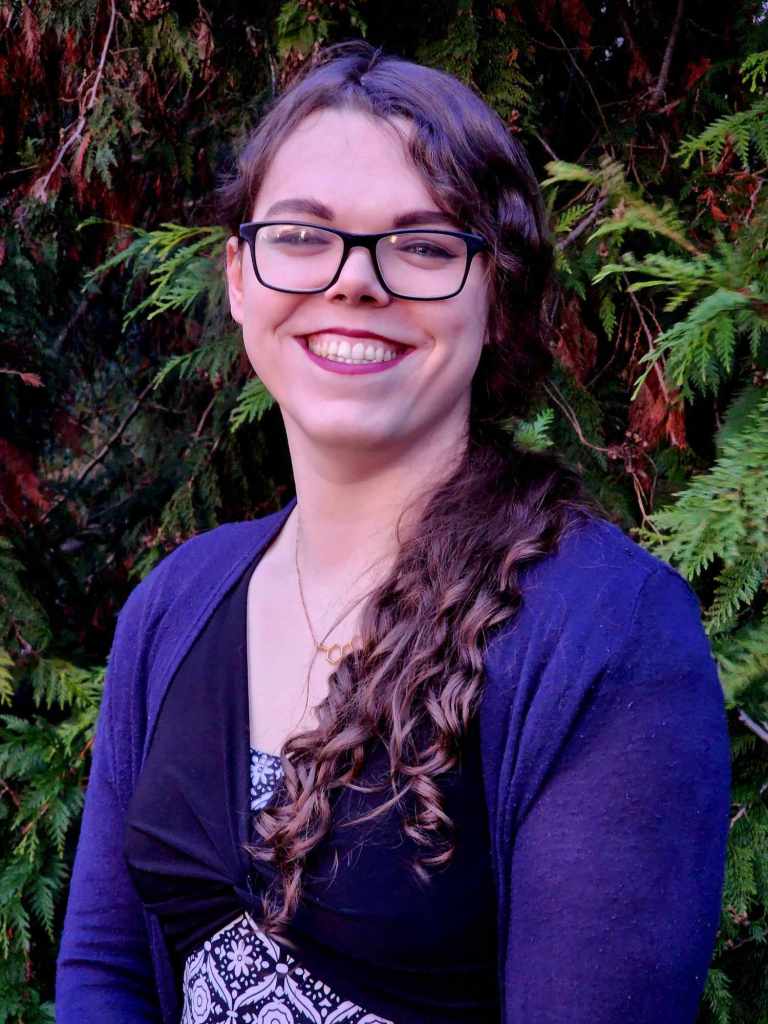
Sasha Berenstein (she/they) is a Yiddish teacher, Klezmer musician, and LGBTQ+ inclusivity activist on unceded Duwamish territory in so-called Seattle. She began her work in transgender/queer inclusivity in the Yiddish language with compiling a glossary of Yiddish transgender/nonbinary/gender-neutral terms that can be found on the League for Yiddish’s “Words of the Week” page and on Medium, which later became the primary vocabulary source drawn from by the authors of Undzer Mishpokhe: A Queer Yiddish Curriculum Supplement. Since then, Sasha has led related workshops and trainings for inclusivity in Yiddish pedagogy, while continuing Yiddish language instruction centering accessibility and identity for queer, trans, and disabled folks. Sasha is also especially passionate about creating inclusive educational environments for immunocompromised folks since the start of the COVID-19 pandemic, adapting Yiddish curricula to online formats to meet the needs of the growing demographic of people who can’t safely or reliably attend class in person.
